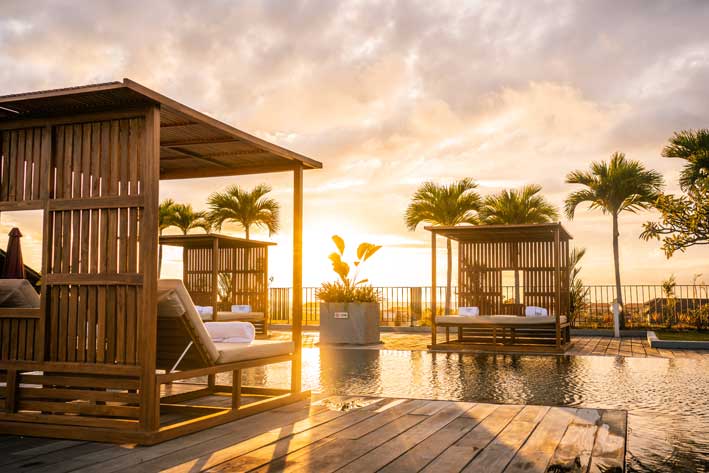Philip Logan, COO, Royal Orchid Hotels, explains how hotel groups are becoming increasingly concerned about their environmental impact and the measures they are taking in order to ensure they are doing their bit towards the same.
Hazel Jain
Nowadays, hotels are becoming more concerned about their environmental impact. Sustainability is a top priority while designing new highquality hotels. Philip Logan, Chief Operating Officer (COO), Royal Orchid Hotels, says hotels can be run in a sustainable manner by following two distinct ways. “One is through the hotel’s built environment and infrastructure. New hotels are built with energy efficiency in mind, aiming to save energy, prevent heat loss, and make the most of resources. They use technologies like heat pumps, advanced treated glass, and systems to reuse ‘brown’ wastewater and have waterless urinals,” he says.
He adds that the material used for the construction of hotels often comes from sustainable sources. “For instance, they might use certified timber from forests that aren’t old-growth, reusable plastic, waste-derived bricks, or steel instead of excessive cement and lime. These hotels also incorporate features that save energy, such as solar panels on the rooftop, solar systems for heating water in resorts, and gardens on the roof and walls to reduce heat. In Dubai, there is even a hotel that uses wind energy for movement,” he further adds.
Even older hotels are thinking about making changes to their equipment and systems to use less energy. These hotels are also designed with LEED-rated systems, which means they are recognised for environmentally friendly practices. They also try to minimise how much land they use for their projects.
Another way hotels ensure sustainability is through their daily operations. Logan says, “This can be done through elimination of single-use plastics, such as bathroom amenities to pump refills. Hotels also eliminate long-haul supply chain to replace with locally sourced products. Hotels are progressively positioning themselves as local hospitality service providers within the community, actively promoting their services.
Some hotels recycle used soap by re-moulding the soap cakes and creating new bars, which they then distribute as part of an NGO initiative to support underprivileged communities. Bottled water should either be made recyclable or packaged in glass containers that can be crushed to minimise the amount of waste sent to landfills.”
Measures that can save energy
- Reduction of pollutants in refrigeration.
- Use of energy saving devices, such as timers, motion sensors for lights, and low wattage LED.
- Energy audits to be conducted to look at air flow to reduce AHU and HVAC energy loss.
- In the F&B sector, the key focus is on the three Rs: Reducing, Reusing, and Recycling. This catchphrase emphasises the goals of waste reduction, maximising reuse opportunities, and recycling leftover materials.
- Cardboard balers, glass crushers and plastic recycle systems.
- Elimination of non-organic purchases.
- Gifts for guests are carefully selected from local communities.
 TravTalk India Online Magazine
TravTalk India Online Magazine





